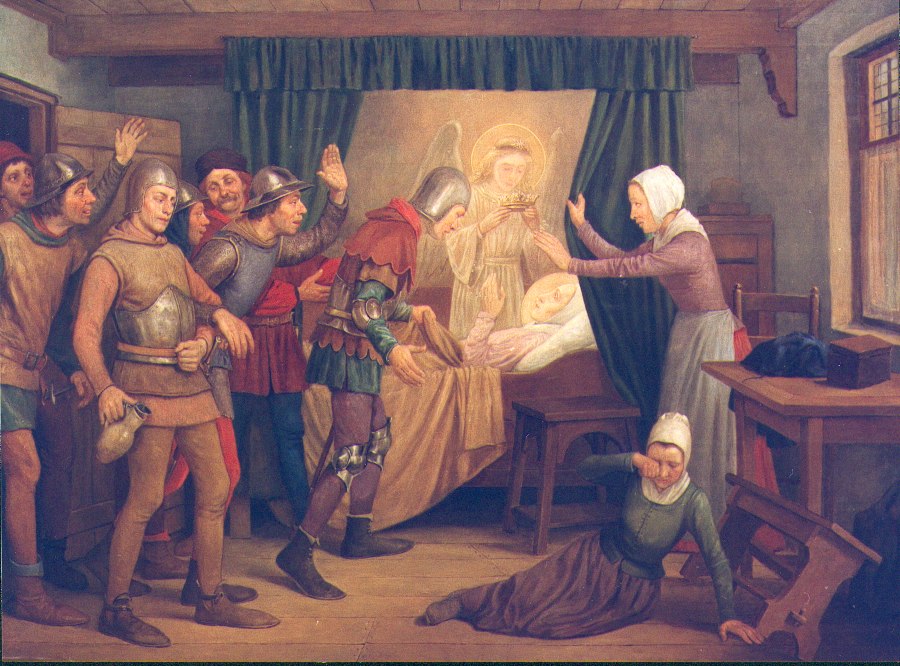St. Lydwine

Those who live in constant pain have a special heavenly patron, the Hollander Saint Lydwine of Schiedam, "a prodigy of human misery and of heroic patience." The only daughter among the nine children of a poor but devout laborer, Lydwine took a private vow of virginity before she was fifteen. Otherwise, she was an ordinary child.
In 1396, while enjoying a skating party on a frozen canal, Lydwine fell and broke some ribs. Normally, these would have mended as a result of the good care she was given. As a matter of fact, however, a host of complications set in that finally affected her whole body so that she would assume no position, walking, standing, sitting or lying, that allowed her any comfort.
Only gradually, through the counsel of her parish priest, Lydwine became aware that there could be a reason behind this overwhelming pain. Once she was persuaded that by accepting the suffering as an atonement in Christ for the sins of others, she became not only willing but eager to assume the role of victim. For years she was bedridden, virtually one sore from head to foot. Loyal friends galore and the best physicians tried to help her, but in vain. Although normally people would have kept their distance because of the usual stench of open sores, in her case, those who nursed her said that her body rather gave off a sweet fragrance, and even glowed with a heavenly brightness. Other mystical gifts were also granted her, and by the end, her only food for nineteen years was the Holy Eucharist.
To almost every variety of physical disability were added spiritual pains. Her new parish priest thought she was a faker and for a time denied her Holy Communion. Eventually her reputation was vindicated. A niece who tried to protect Lydwine from two soldiers who invaded the sickroom died as the result of injuries they did her. The tragic loss of this niece, Petronilla, caused the sick woman untold anguish.
In the end, Lydwine died very suddenly -- alone, as she would have preferred. Great veneration for this valiant woman had begun even during her life. It increased mightily after her death, as a result of the writings of such eminent writers as Thomas a Kempis, compiler of the famous book, The Imitation of Christ. Some of God's saints we take to more readily because, being pragmatic ourselves, we admire, say, their acceptance of martyrdom by enemies of Christ, or their charity to the poor. Normally, we would be less attracted to those whose vocation was to engage in prayer at a depth that is beyond our depth, or, as in the case of Saint Lydwine, to appreciate her mysterious calling to suffer on behalf of those who do not take up their own crosses and follow Christ.
But those who are called to this mystical vocation fulfill a necessary role. They remind us that without a Good Friday there can be no Easter. One interesting fact is that God normally gives such a call to women rather than to men. Isn't it because women, at least in self-giving, are really the "stronger sex?" Didn't Our Lady stand at the foot of the cross?
~ Father Robert F. McNamara


0 Comments:
Post a Comment
<< Home